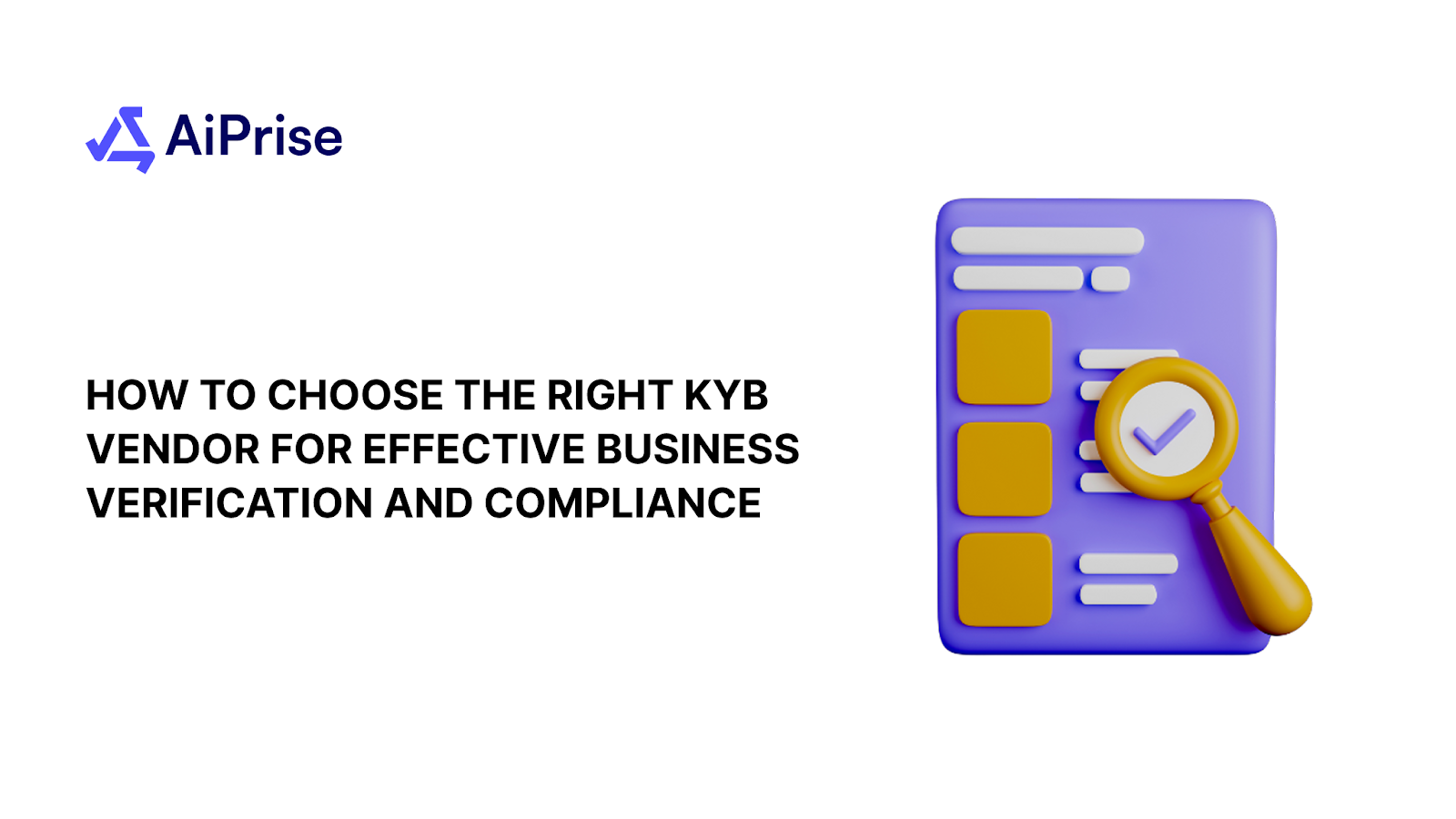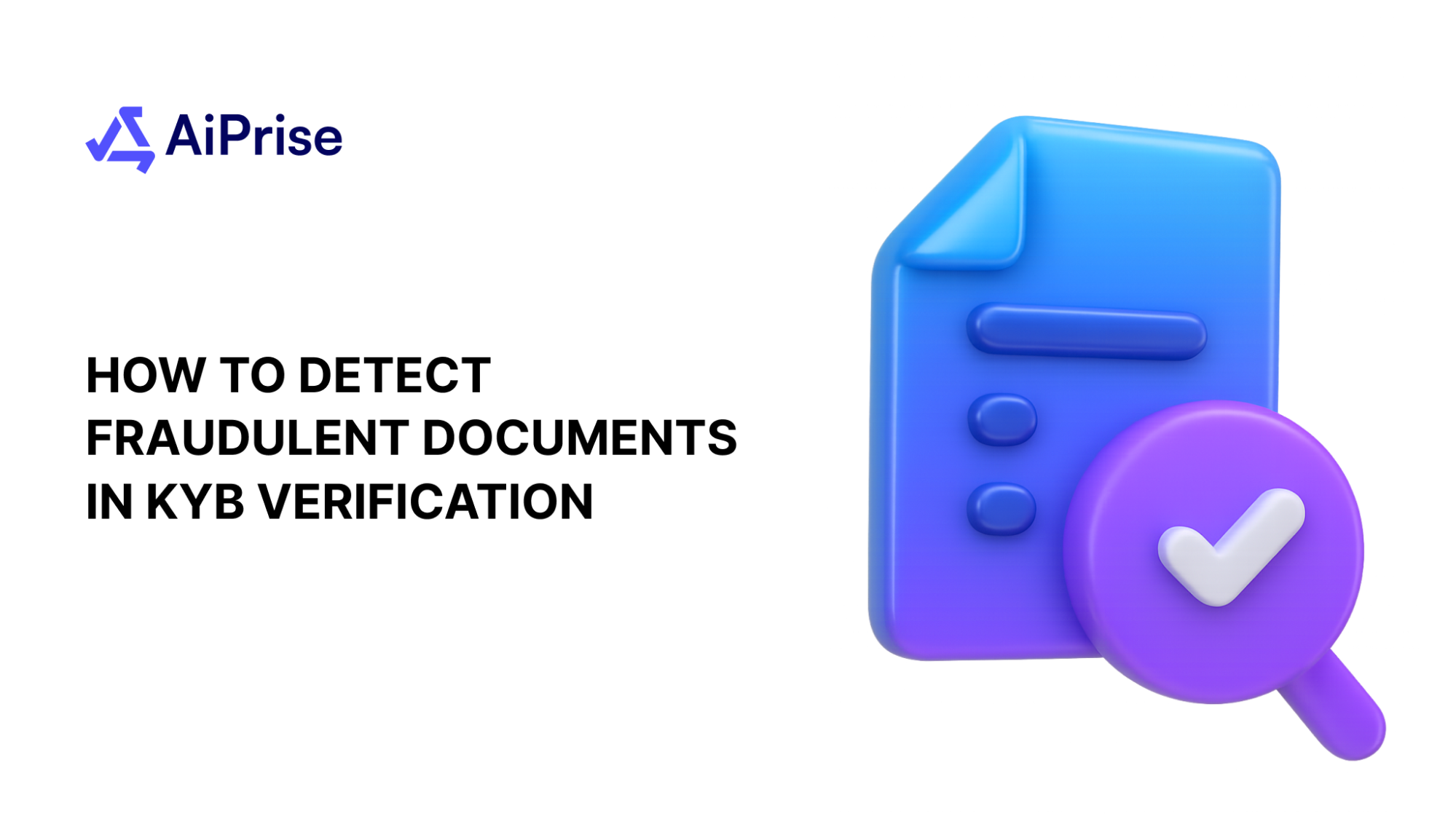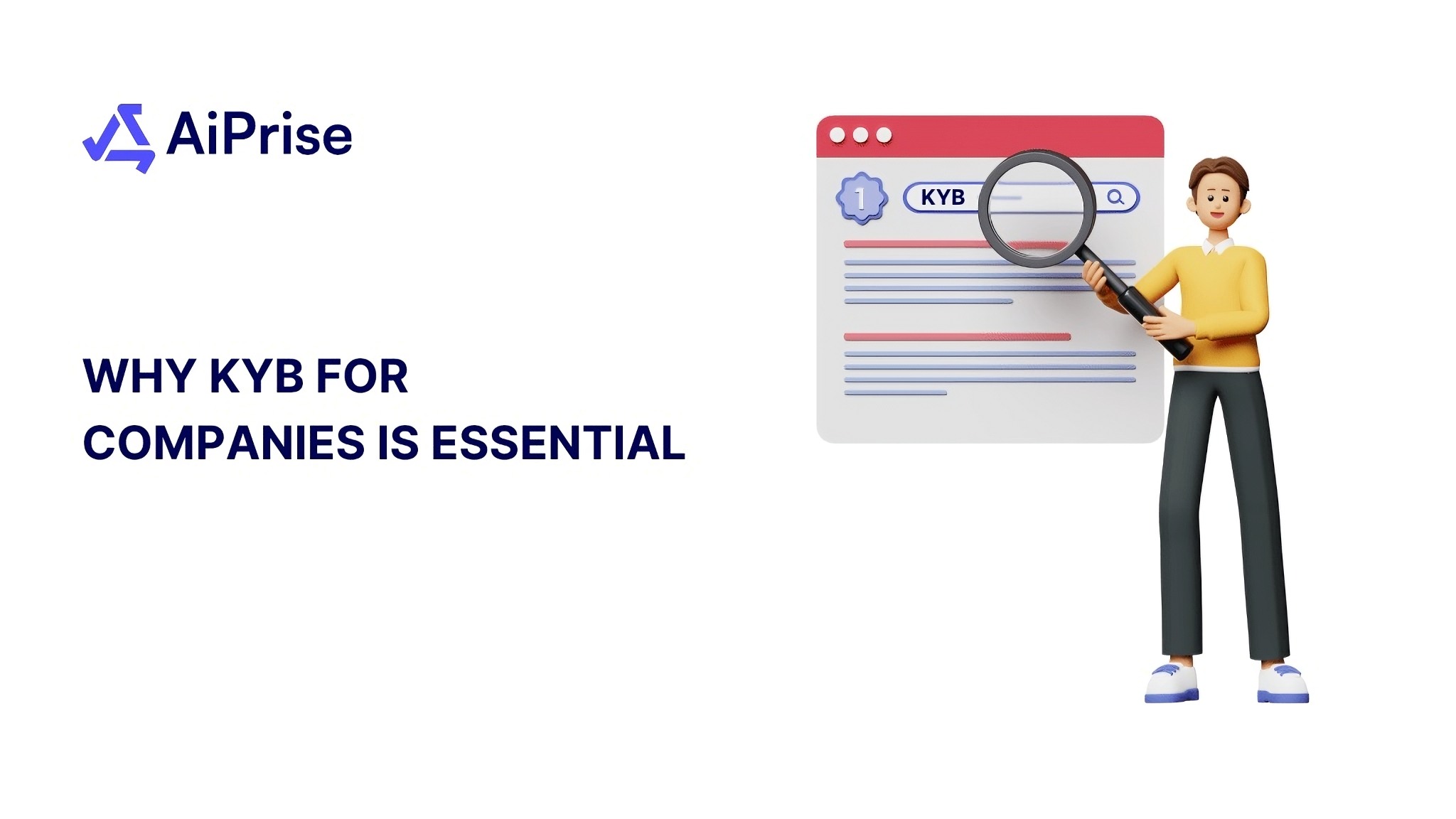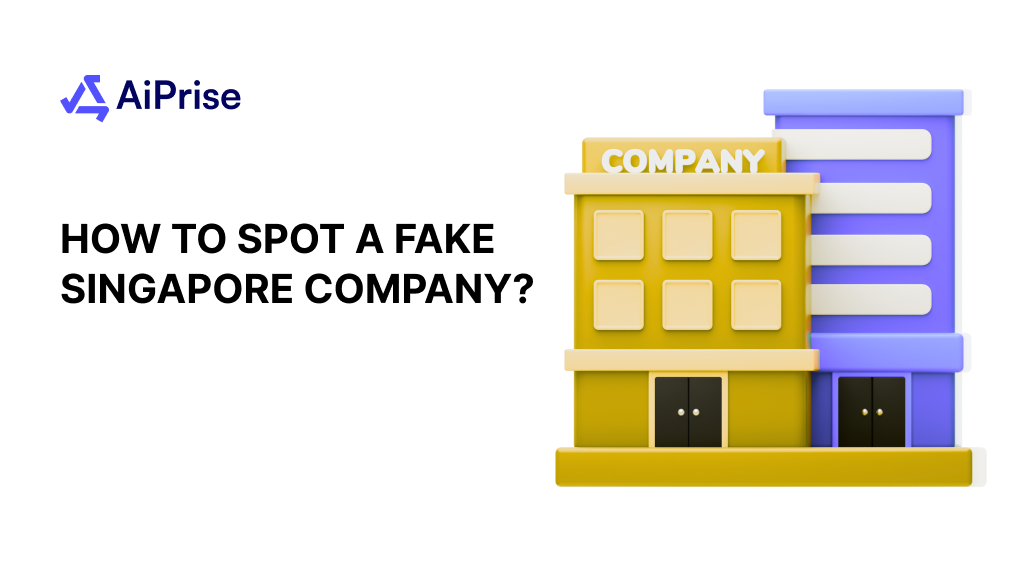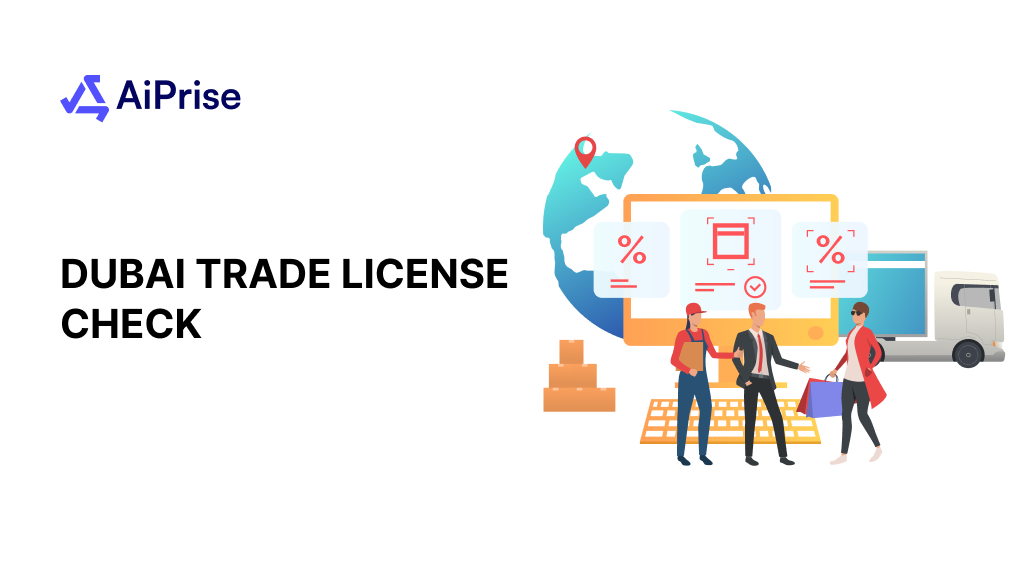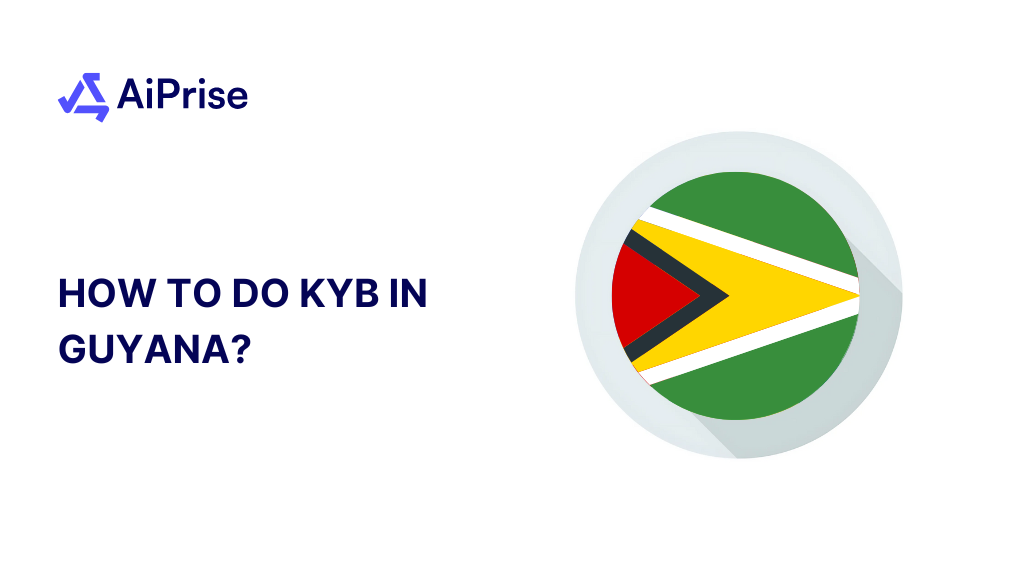AiPrise
9 min read
March 26, 2025
How To Do Business Verification In South Africa?

Key Takeaways










South Africa’s market presents both opportunities and challenges for organizations. With a significant informal economy accounting for nearly 30% of the country’s GDP, businesses often operate outside formal regulatory frameworks.
In this environment, Know Your Business (KYB) compliance has become essential for maintaining transparency, mitigating risks, and fostering trust among stakeholders.
It plays a pivotal role in addressing the dual challenges of verifying unregistered entities and adhering to stringent regulatory requirements, such as the Financial Intelligence Centre Act (FICA).
By implementing robust KYB processes, organizations can not only ensure compliance but also safeguard their operations against fraud and financial crimes.
Introduction to KYB in South Africa
In today's dynamic business environment, trust is paramount. Whether you're a seasoned entrepreneur or just starting out, knowing who you're dealing with is crucial for mitigating risk and fostering successful partnerships. This is where Know Your Business (KYB) comes in.
In South Africa, KYB involves gathering and verifying essential documentation, evaluating financial and operational risks, and aligning with both local and global compliance standards.
Adhering to compliance requirements in South Africa’s dynamic business landscape can be challenging. However, advanced KYB platforms like those offered by AiPrise simplify this process.
By integrating real-time data and leveraging cutting-edge tools, businesses can enhance the security and efficiency of their partnerships, ensuring robust compliance while mitigating risks.
Why is KYB Important in South Africa?
South Africa's business landscape presents unique challenges. The rise of digital transactions and the evolving regulatory environment necessitate a comprehensive approach to mitigating risk. KYB empowers businesses to navigate these complexities with confidence.
Here's a closer look at why KYB is particularly important in South Africa:
- Combating financial crime: South Africa has a history of financial crime, and KYB acts as a vital defense mechanism.
- Protecting your reputation: Associating with illegitimate businesses can damage your reputation. KYB safeguards your brand image.
- Fostering a culture of compliance: A strong KYB culture demonstrates your commitment to ethical business practices.
Now that you know the significance of KYB in South Africa, it’s important that you are aware of the major business verification challenges that usually come in South Africa.
Major Business Verification Challenges in South Africa
South Africa's business landscape presents unique challenges in verifying the legitimacy and compliance of business entities. Understanding these obstacles is crucial for implementing effective Know Your Business (KYB) processes.
1. High Failure Rate of Small Businesses: Access to funding remains a significant challenge for small business corporations in South Africa. According to a report by the Small Enterprise Development Agency (SEDA), only 12% of small businesses in South Africa have access to formal funding channels. This lack of access to funding can hinder business growth, limit job creation, and increase the risk of business failure.
2. Prevalence of Identity Fraud: Identity fraud is on the rise in South Africa, with the latest statistics recording a 400% surge in impersonation fraud from April 2023 to April 2024.
3. Limited Access to Technology: Limited access to technology is a challenge faced by small business corporations in South Africa. According to a report by the South African Telecommunications Regulatory Authority (ICASA), 40% of small businesses in South Africa do not have access to the internet.
4. Regulatory Compliance Burdens: Regulatory compliance is a significant challenge for small ones in South Africa. According to a report by the South African Revenue Service (SARS), small businesses in South Africa are required to comply with over 100 different regulations.
5. Competition from Larger Companies
Competition from larger companies is another significant challenge for small business corporations in South Africa. According to a report by the World Bank, large companies in South Africa account for 70% of the country’s GDP, leaving small businesses to compete for the remaining 30%.
Addressing these challenges requires a comprehensive approach, including leveraging advanced KYB access to technology.
As the next step, you should equip yourself with the key regulations that are majorly influencing the process and economy as well.
Key Financial Regulations in South Africa
South Africa’s regulatory framework is designed to combat financial crimes and promote transparency. KYB plays a critical role in ensuring compliance with these regulations, including the Financial Intelligence Centre Act (FICA) and anti-money laundering (AML) laws.
Here are the key legal requirements that businesses must adhere to for effective KYB implementation.
Financial Intelligence Centre (FIC) Act
FICA is South Africa’s cornerstone legislation for combating money laundering and terrorist financing. Under FICA, accountable institutions, including banks and financial service providers, are required to:
- Conduct Customer Due Diligence (CDD) to verify the identities of business clients.
- Maintain comprehensive records of transactions and client information.
- Report suspicious activities to the Financial Intelligence Centre (FIC).
Failure to comply with FICA can result in severe penalties, including fines of up to ZAR 10 million or imprisonment for up to 15 years.
Anti-Money Laundering (AML) Laws
South Africa’s AML laws align with international standards set by the Financial Action Task Force (FATF). These regulations mandate businesses to implement measures that prevent the use of financial systems for illicit activities. Key requirements include:
- Identifying and monitoring high-risk entities.
- Conducting ongoing risk assessments to detect potential money laundering activities.
Effective KYB practices enable organizations to meet these AML requirements and contribute to global efforts against financial crime.
Prevention and Combating of Corrupt Activities (PRECCA)
PRECCA aims to tackle corruption across all sectors of the economy. By enforcing strict penalties for unethical practices, PRECCA complements KYB processes, ensuring businesses operate transparently and ethically.
Verifying the legitimacy of entities through KYB helps organizations avoid associations with corrupt practices and maintain compliance with PRECCA.
Step-by-Step KYB Process in South Africa
Conducting KYB involves a structured approach to verify business legitimacy, assess risks, and ensure compliance. Below are the key steps organizations must follow for effective implementation.
Step 1: Collect Initial Business Information
Start by gathering the following essential details:
- Business name, registration number, and physical address.
- Contact details and operational purpose.
- Ownership structure, including Ultimate Beneficial Owners (UBOs).
This foundational data sets the stage for verification and risk assessment.
Step 2: Authenticate Legal Documents
Verify the legitimacy of the business through key documents, such as:
- Certificates of incorporation.
- Tax clearance certificates.
- Licenses and permits.
Cross-reference these documents with government registries and official databases to confirm their authenticity.
Step 3: Perform Risk Assessment
Evaluate the business for potential risks by analyzing:
- The industry and geographic region it operates in.
- Historical reputation and any negative press.
- Ownership complexity, which may signal higher scrutiny needs.
Risk assessments help assign a risk score that informs the level of ongoing monitoring required.
Step 4: Conduct Watchlist and Sanctions Screening
Screen the business and its stakeholders against:
- International sanctions lists.
- Politically Exposed Persons (PEP) databases.
- Local and global watchlists to identify potential risks or non-compliance.
Step 5: Establish Ongoing Monitoring
KYB is an ongoing process. Regularly:
- Review business operations and financial health.
- Monitor for changes in ownership or legal status.
- Update records to reflect any shifts in risk or compliance status.
Following these steps ensures a robust KYB process that minimizes risks while maintaining compliance.
Effective KYB doesn’t end with verification—it requires consistent adherence to regulatory standards.
Next, we’ll discuss the consequences of non-compliance and why businesses must prioritize KYB practices to safeguard their operations.
Non-Compliance with KYB
Failing to comply with KYB regulations poses significant risks for businesses, from financial fraud to regulatory penalties. Without robust verification processes, organizations leave themselves vulnerable to engaging with high-risk entities, jeopardizing their operations and reputation.
Critical Nature of KYB Compliance
Maintaining KYB compliance is not just a regulatory requirement—it is essential for fostering trust and ensuring secure business operations. Non-compliance exposes organizations to the risk of engaging with fraudulent or high-risk entities, which can lead to severe repercussions.
Consequences of Non-Compliance
The failure to implement robust KYB processes can result in:
- Financial Fraud: Without proper verification, businesses face higher exposure to scams, false identities, and fraudulent transactions.
- Regulatory Penalties: Non-compliance with laws like FICA and AML regulations can lead to hefty fines, legal actions, and operational disruptions.
- Reputational Damage: Publicized cases of non-compliance can erode trust among customers, partners, and stakeholders, potentially causing long-term harm to the organization’s credibility.
By prioritizing KYB, businesses can mitigate these risks, meet regulatory obligations, and protect their reputation in a competitive market.
Addressing these challenges requires more than just compliance—it demands efficiency and adaptability. In the next section, we’ll explore how KYB helps detect fraud, streamline verification, and ensure long-term operational security in South Africa.
Conclusion
South Africa’s dynamic business environment presents unique challenges, from an expansive informal economy to rising cases of fraud and identity theft. Navigating these hurdles requires businesses to comply with critical regulations such as FICA, AML standards, and PRECCA while implementing robust KYB processes.
Understand that incorporating KYB isn’t just about avoiding penalties; it’s about safeguarding your operations, reputation, and partnerships. To optimize your KYB processes, consider leveraging solutions like those offered by AiPrise, designed to ensure compliance and elevate verification standards across borders.
Take the next step—Schedule a demo today and discover tailored KYB solutions for your needs.
You might want to read these...

Aiprise has helped streamline our KYB (Know Your Business) flow in 100+ countries. No other tool comes close.





Speed Up Your Compliance by 10x
Automate your compliance processes with AiPrise and focus on growing your business.


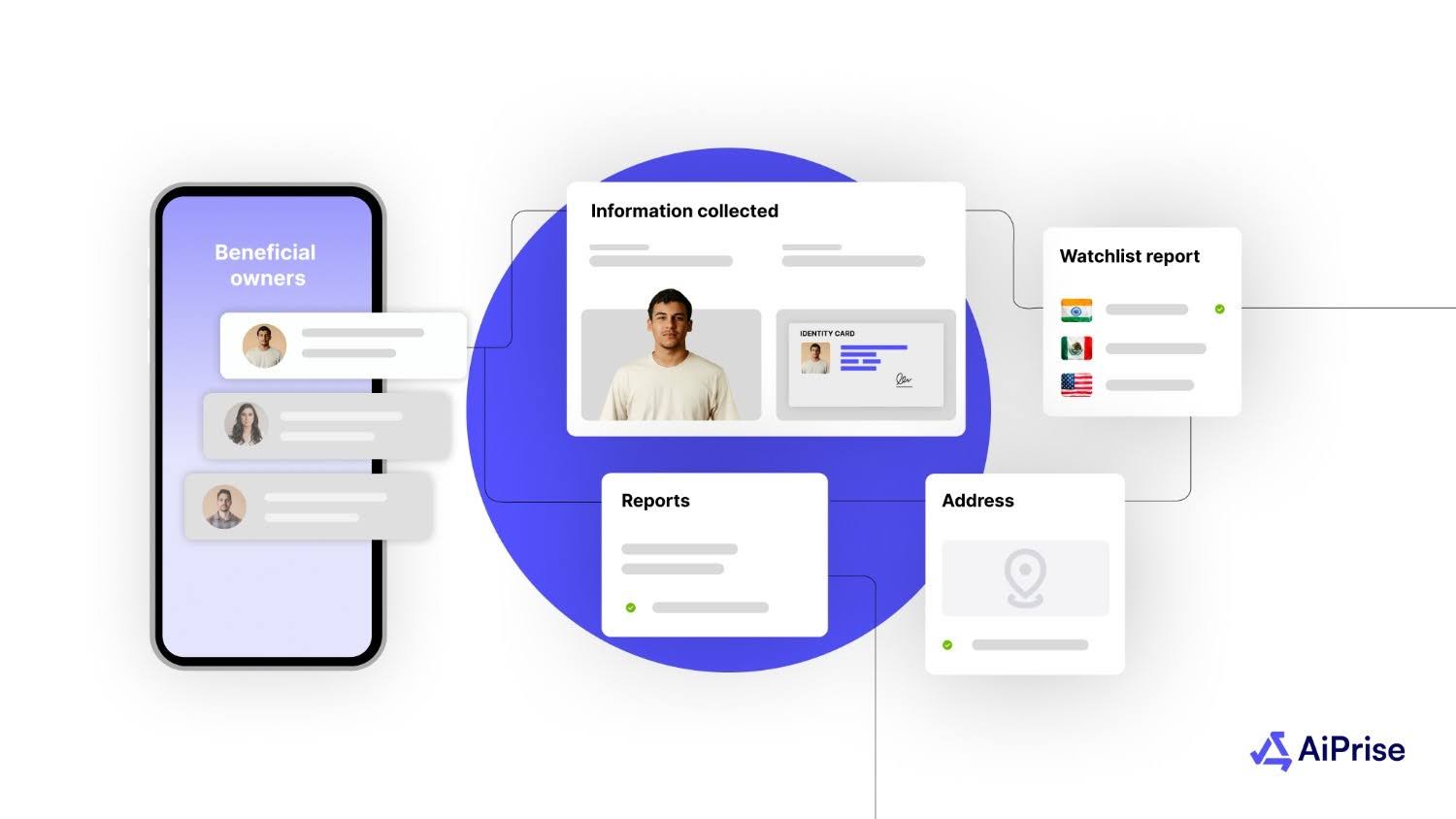

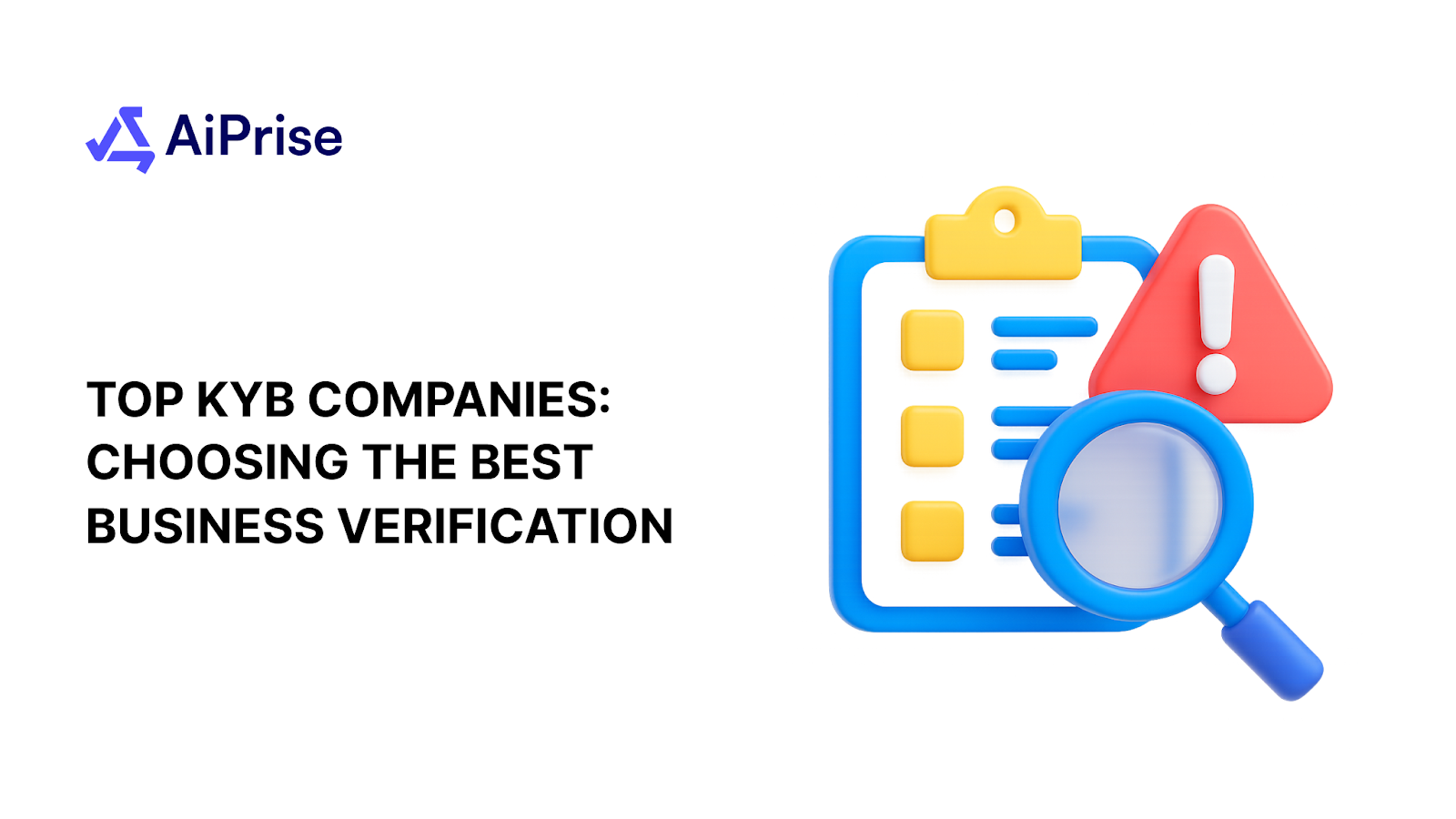
%20Can%20Improve%20Your%20Compliance%20Strategy.png)
